Best reptile heating pads 2025: Let your reptiles bask in the heat
The best reptile heating pads deliver a cozy spot for your reptiles to hang out, and ensure they're comfortable and cozy all year round
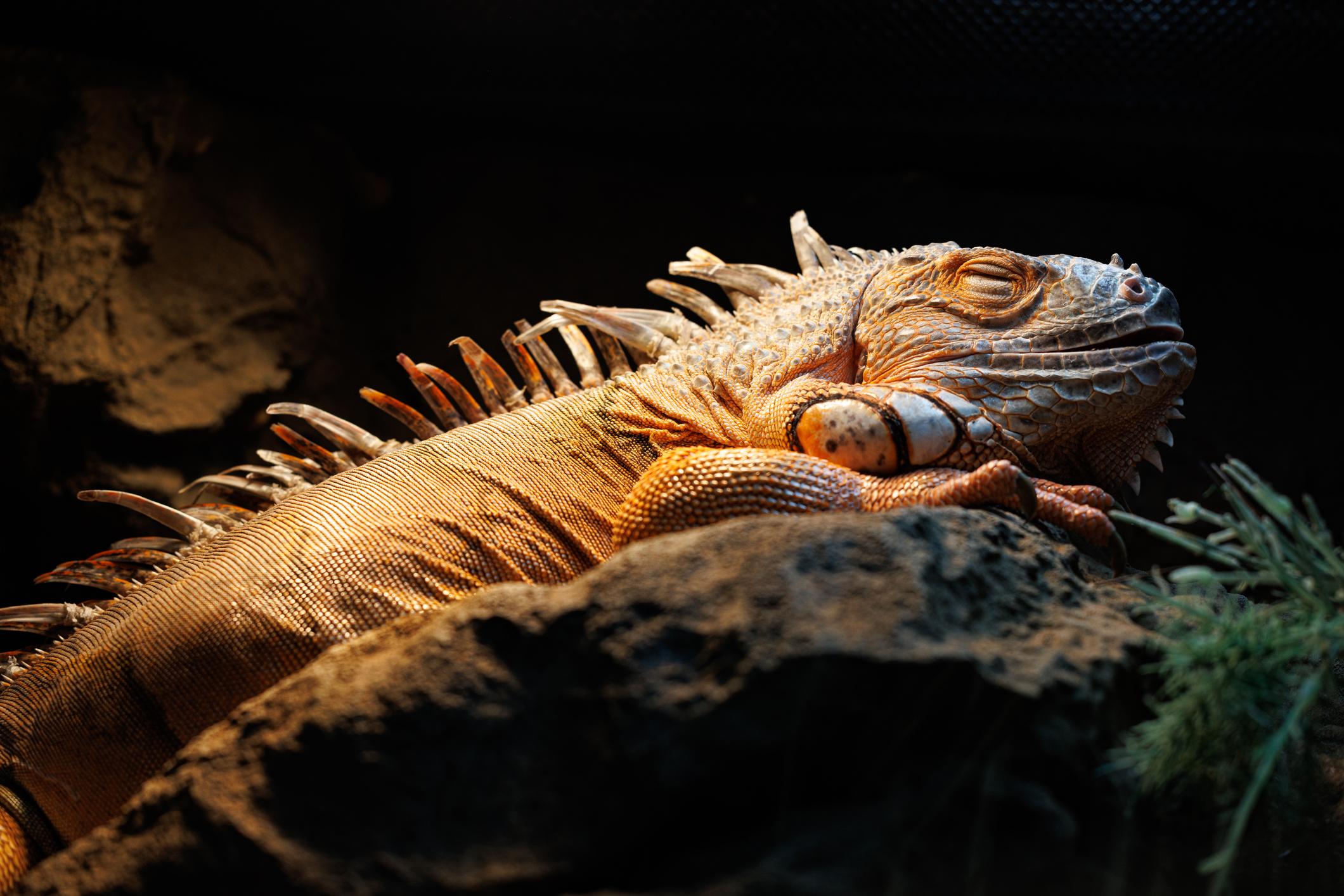
The best reptile heating pads are the ideal way to ensure your scaly pal has a natural environment where they can stay toasty all year round. Reptiles are cold-blooded animals, which means they don't make their own internal heat. Instead, they are entirely reliant on their environment to main the proper body temperature.
Along with a properly sized terrarium, and toys for enrichment, you'll need to invest in proper heating to keep your pet happy and healthy. Different reptiles like Bearded Lizards have different requirements to keep them in ideal health. However, some things are true for all reptiles, like keeping them nice and toasty.
In the wild, many reptiles like to bask on sunny branches or flat rocks, but when you've got a pet reptile, some additional equipment is required to ensure they stay comfy and cozy. Artificial heat sources are absolutely crucial to the health, and well being of your pet.
Heating pads offer an excellent way to add additional heat options to your terrarium, on top of heating lamps. However, you'll want to consider both the size of your tank, and the size of your reptile to ensure its a good fit. If you're just getting started, you'll want to ensure you've chosen the right items for your new reptile friend like tanks, toys, and enrichment ideas, but if you're already set up, then choosing a heating pad can raise their quality of life.
To help you find the right pad for your pal, we've rounded up a selection of our favorite reptile heating pads, as well as speaking to Dr. Lily Richards for tips on selecting the right heat mat for your scaly pal.

Dr. Lily Richards is a Veterinarian from Devon, with 11 years of experience in farm, equine, small animal and exotic patient care. After running a busy clinic she took a step into client education focusing on getting the right information to those that need it and are searching for help and advice from professionals online.
Dr. Richards has some tips when looking for the right heating pad for your reptiles.
"Heat mats are a good option for many smaller snakes and nocturnal
lizards who like underbelly heat. Heat pads are designed to be used
primarily to create a hot spot or basking area within a vivarium, as part of
the temperature control equipment required for cold-blooded animals to
maintain an optimal body temperature for good health. Heat pads are
used alongside ambient temperature heating solutions (halogen lamps /
ceramic heaters). When choosing an appropriate heat pad, consider the
appropriate size heat pad, vivarium size and layout, and other heat
sources required to maintain the ambient temperature of the terrarium,
alongside the heat pad itself."
PetsRadar's pick of the best reptile heating pads
Why you can trust PetsRadar
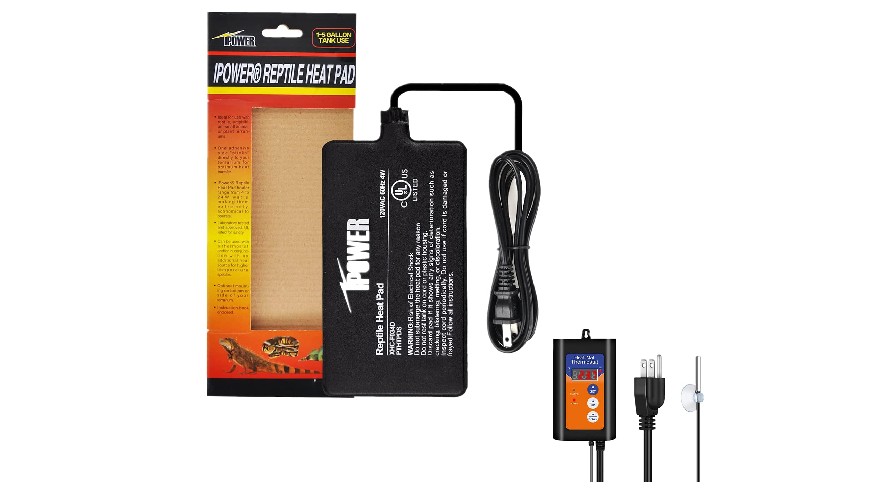

iPower Reptile Heat Pad
Our expert review:
Specifications
Reasons to buy
Reasons to avoid
Want an all-round reptile heat pad that gives you plenty of choices and options? That’s exactly what you get with this under tank heater from iPower. You have the choice of buying just the heat pad, or if you want more control over tank temperature you can add a thermostat.
Available in four different sizes - each with a different wattage - there is something for every type of terrarium and budget. To save yourself a few dollars you could start off with the heat pad and see how that works for you. But be warned you can’t buy the thermostat separately, so it might be a good choice to go all out from the start.
The 4 x 7 inch 4W pad is a good choice for 1-5 gallons tanks, while the 6 x 8 inch is good for 10-20 gallon tanks. The 8 x 12 inch pad has an output of 16W and is the ideal companion for a 30-40 gallon tank. The largest in the range - 8 x18 inch - pumps out 24W and is a great hat source for large 50 gallon plus tanks.
Whatever heat pad you choose it will stay safe and secure thanks to its super strong 3M glue panel. However, the pad is going to be stuck wherever you place it because of that glue, so be sure its precisely where you intend before setting it in place. Covered with thick insulation, it delivers a quick heat transfer, and can reach up to 108 degrees Farenheit in an hour. However, it can be prone to overheating and doesn't have an automatic cut-off if you don't have a thermostat attached.
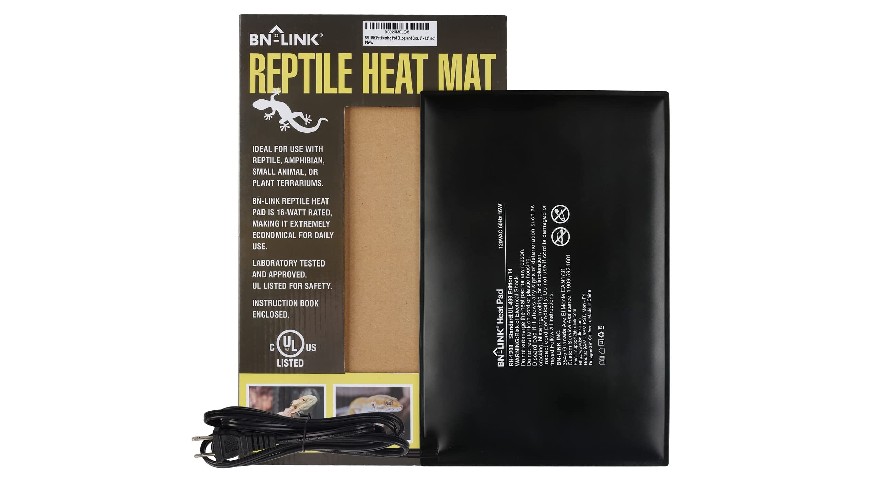
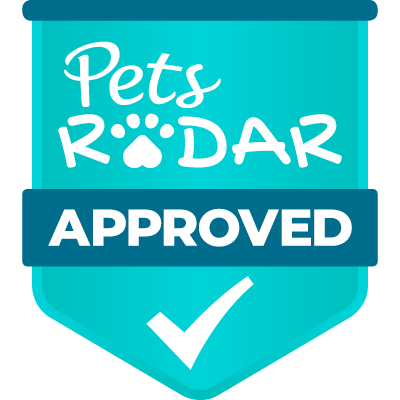
BN-LINK Reptile Heating Pad
Our expert review:
Specifications
Reasons to buy
Reasons to avoid
If you want a simple, no-nonsense heating pad that is built to last at a budget-friendly price then this reptile heating pad from BN-LINK is a great choice for your terrarium. Made from a strong and durable PVC material its five layer design means that it is impervious to water when cleaning, but is not 100% waterproof. However, its construction does mean that it heats up in less than an hour and offers uniform heat distribution.
This heating pad is available in six different sizes, but only two of them include thermostats for adjusting the temperature. The 6 x 8 inch model pumps out 8W and is perfect for a 10 -20 gallon terrarium. The 8" x 12" model is bumped up to 16W and gives a steady heat flow to help keep your 20-30 gallon tank at the temperature you want.
It also features an energy efficient design, so it shouldn't make a large impact on your electricity bill.
Like most reptile heat pads it is only suitable for a glass terrarium and to make sure that it stays in place it has a super strong 3M glue based panel. All you need to do is peel off the sticker and place it on clean dry glass. You won’t be able to reposition once it's in place so make sure you choose the right spot and you are within six feet of a power outlet. Otherwise you’ll need to move your terrarium to power the heat pad.
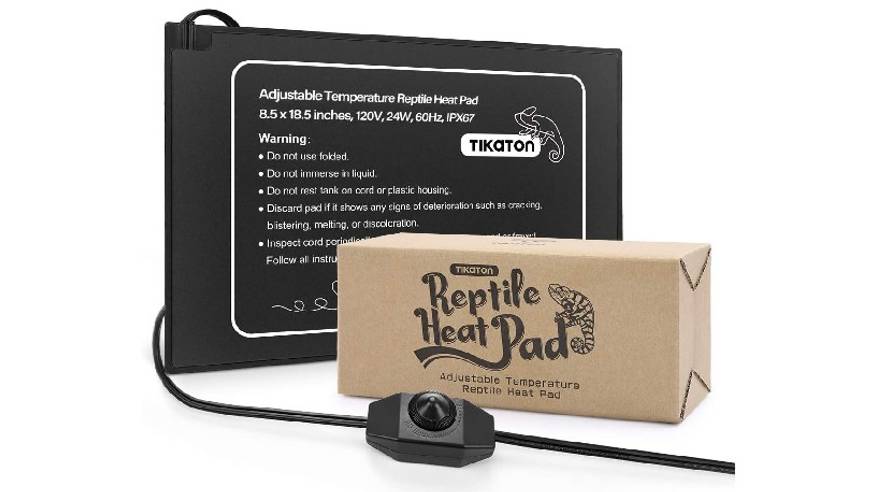

Tikaton Reptile Heat Pad
Our expert review:
Specifications
Reasons to buy
Reasons to avoid
Want a reptile heat pad, that can be adjusted? This heat pad from Tikaton comes in three sizes and is available with either an adjustment knob, or a thermostat. The adjustment knob or thermostat control are integrated into the 1.8m power cord which thankfully has a reinforced connector to help prolong the life of the heat pad and the temperature control at the same time.
Depending on the model you choose, you have access to different options. The adjustment knob delivers three options: low, medium, and high heat settings. Meanwhile, the thermostat allows you to finetune the temperature of the heating pad by degree, and includes options for Fahrenheit or Celsius readouts.
Made from a durable water resistant PVC material - ideal when it needs cleaning - there is a choice of three sizes. The smallest of the range is the 6 x 8 inch pad which has a relatively low output of 8W and is an ideal choice for 10-20 gallon tanks. The larger 12 x 8 and 18.5 x 8.5 inch pads both have an output of 16W and are fully usable with tanks up to 40 gallons.
Combined with the solid state nichrome heating element you're getting an energy efficient mat that will help keep costs down. But the installation of the pad is not quite as simple as some. There is no full glue pad, but you do get double sided tape included. You will need to heat the pad before you apply the tape. If you don’t follow the instructions you won’t get a really good fix on your glass terrarium.
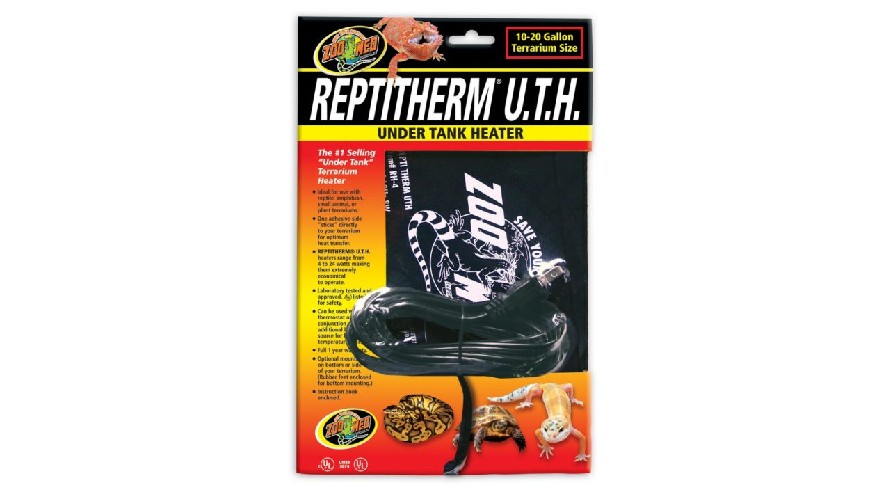

Zoo Med Medium Repti-Therm UTH Under Tank Heater
Our expert review:
Specifications
Reasons to buy
Reasons to avoid
Don’t be put off by the fact that this heat pad calls itself an under tank heater. It is just as capable of being placed on the side of a tank thanks to its large adhesive base, which means once this pad is stuck in position it is going nowhere. Another plus is that its strong bond to your tank means that you get maximum heat exchange giving lower running costs and higher efficiency.
But it is worth noting that it is for glass terrariums only and has to be stuck on the outside of the tank. But this isn’t a criteria that is exclusive to the Zoo Med, a lot of similar reptile heat pads operate in exactly the same way.
If you do want to use the heat pad on the bottom of your tank you will need to lift the tank up a few centimetres to allow for air circulation and stop overheating. But, don’t worry, a set of four perfectly-sized, easy to fit rubber feet are included with the pad to make sure all works well.
The 8 x 12 inch model featured here is the perfect choice as a primary or secondary heat source - depending on your reptile - for a 30-40 gallon tank, But if you have a smaller - or larger - tank, other models from the same range are available to suit your needs.
Unfortunately, there is no thermostat included, but the purpose of the pad is that it has a set temperature that brings the ambient temperature in the cage 2-8 degrees higher than outside the cage. If you need to really pump up the heat and need basking temperatures above 90 degrees in your terrarium you might need to look at a different option.
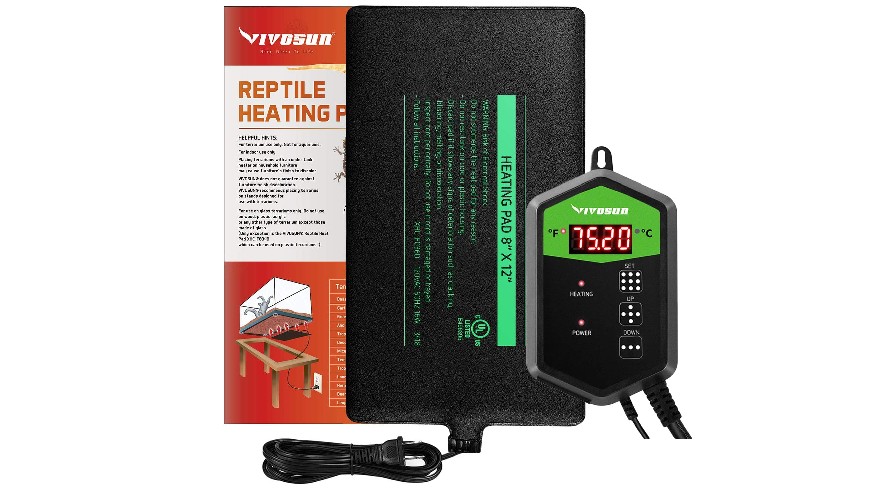

VIVOSUN Upgrade Reptile Heat Mat
Our expert review:
Specifications
Reasons to buy
Reasons to avoid
If you want complete control over the temperature range of your terrarium you will be hard pushed to find a better reptile heat pad and thermostat combo than this. The VIVOSUN comes with a sturdy heat mat, an easy to control thermostat and a temperature probe to get a wide range of output options.
The reptile mat comes in three sizes - 6 x 8, 8x12 and 8 x 18 inches - which makes them ideal for 20-40 gallon tanks. The smaller of the range boasts an 8W output and is the better choice for a 20 gallon tank while the larger pad measures 8 x 12 inches and has an 16W output making it ideal for 30 gallon tanks, the 8 x 18 rocks a 24W output perfect for 40 gallon terrariums.
Where the VIVOSUN reptile heat pad really stands out is the control that the thermostat gives you over the heat output. You can go as low as 40 degrees Fahrenheit and as high as 108, or switch to Celsius if that is your preferred measurement. But to get up to maximum temperature you are going to have to wait a good few hours or longer.
The thermostat itself is an easy-to-grip hexagon design made from strong and sturdy plastic, so it will last. It has a simple LED display and a trio of tactile easy to use buttons that allow you to choose the temperature and set. A couple of small red indicator lights let you know the thermostat is working and the pad is heating up.
Only suitable for glass terrariums the heat pad is easy to fit thanks to its adhesive backing, but choose wisely where you position it as you won’t be able to preposition with any great ease. And note that it claims to be waterproof, which it is but only for cleaning purposes, it cannot be fully submerged.
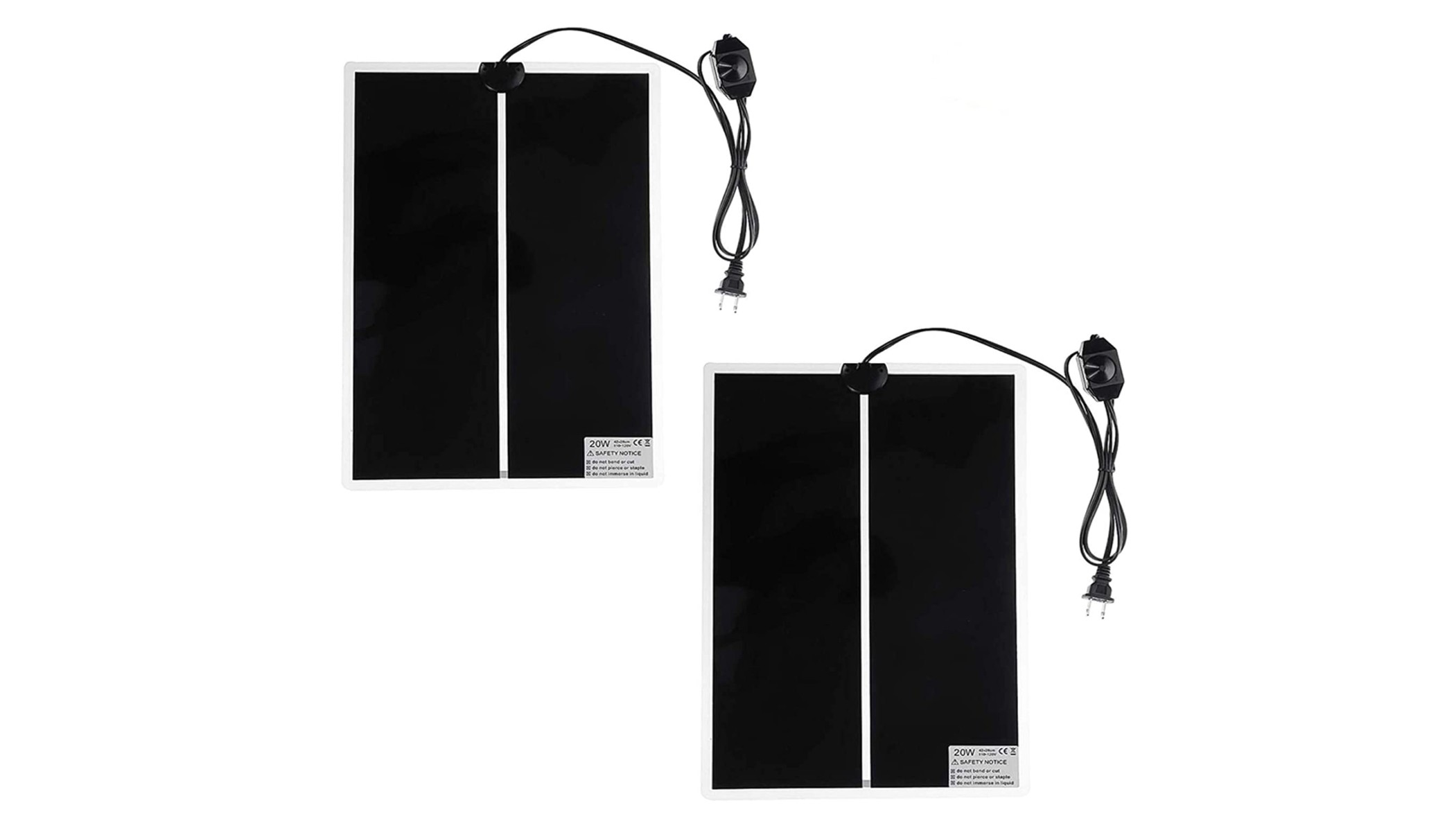

Twfadmx 2 Pack 20W Reptile Heating Pad
Our expert review:
Specifications
Reasons to buy
Reasons to avoid
From turtles and lizards to frogs and snakes, this super affordable twin pack of reptile heating pads will ensure your little friend stays cozy and warm. Made with high quality heating wire material, these durable pads are easy to clean and convenient to use.
Waterproof and damp-proof, they can be used under a tank or vivarium and the temperature control switch will let you head the pads to a balmy maximum of 95 Fahrenheit. The pads are also low-energy, so you won't need to worry about 24-hour use of these beauties hiking up your electricity bill too much.
Measuring 16.5 x11, they're ideal for a range of reptiles and work beautifully with a 30-40 gallon tank. The only issue is the thermostat, which can be tricky to set to a precise temperature at times, but, other than that, customers seem pleased with the value that these heating pads offer.
How to choose the best reptile heating pad
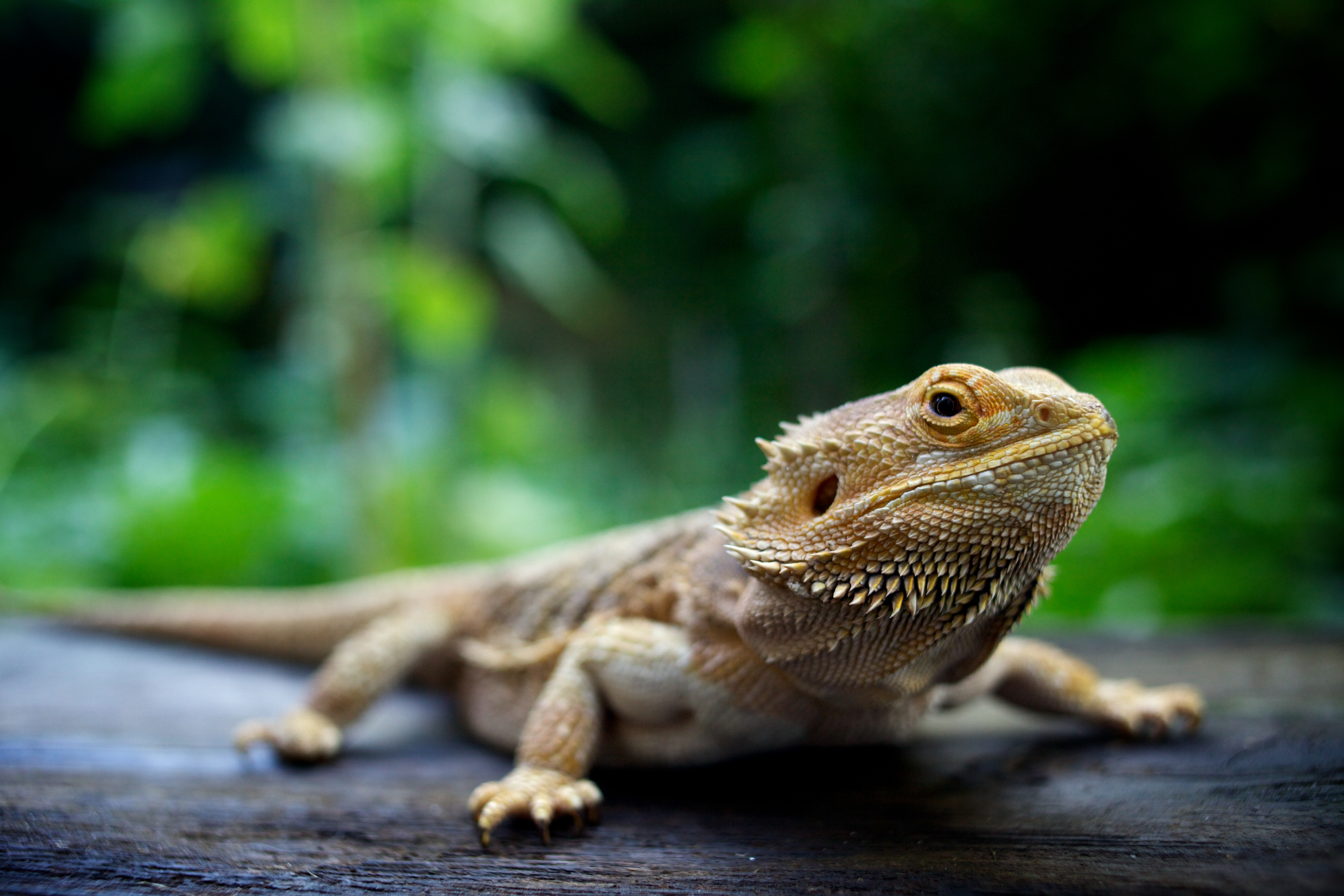
How to choose the right heating pad
Choosing a heating pad for your reptile can be overwhelming, especially if you're on a budget, or trying to find one with specific features. The most important aspect is finding an option that works for you, and your scaly pal.
That's why we've got a few more tips on choosing the heating pad that will deliver hours of basking for your reptile, no matter the species.
Which wattage should you pick?
Getting the temperature in a terrarium is crucial to the health and happiness of your reptile. So you need to make sure that you choose the right wattage. Too high - which can mean too hot - and your reptile can suffer from dehydration and infections. Too low and your reptile will become sluggish and lead to other issues such as digestion problems.
Reptile heating pads commonly run from a low four watts to a high of 24 watts. Which one you will need will depend on the size of your tank. As a general guideline a 10 gallon tank will work with a four watt pad while a 24 watt pad is a good choice for a 50 gallon tank. For tank sizes in between eight or sixteen watts is a good choice.
Which size heating pad do you need?
Bigger isn't always better when it comes to choosing a heating pad for your reptile. Higher wattage is related to a larger pad or mat, but too large of a mat may not fit in your terrarium comfortably.
A good guide is a mat that is 1/3 to 1/2 the size of your tank.
What kind of thermostat is ideal?
Not all heating pads come with thermostats, which means you won't have complete control over the heat in your tank. While many of the more affordable reptile mats do not come with a thermostat, you always have the option to snag one separately.
If your tank is already setup with heating lamps then you don't have to worry as much about a thermostat, but it's still a good idea to have one. After all, if the mat is too hot it can be harmful to your cold-blooded pet.
How do you avoid heating pitfalls?
Keeping the temperature of your terrarium ideal for your pet can be easier said than done, and like care of any pet there are some things to avoid in order to deliver the best life possible.
While a heating pad can help with temperature in your tank, it should never be the only source of heat for your reptile. Remember, these are cold-blooded animals and can't regulate their internal temperatures. Heating pads are meant to be a spot to bask, but if the tank is too cold your scaly pal may bask for too long...which can lead to burns, overheating, and other health concerns with their metabolism or reproductive systems.
Get the best advice, tips and top tech for your beloved Pets
Steve Jenkins is a freelance content creator and long-time journalist with more than 20 years in the industry. He has written for numerous titles covering tech to pets, with his latest faithful hound always by his side. When not walking his dog, or discussing who’s best - cats or dogs? Loud guitars, AFC Bournemouth, Photoshop, and trying to save the world take up the rest of this time.
- Jen KarnerHigh Yield Editor
